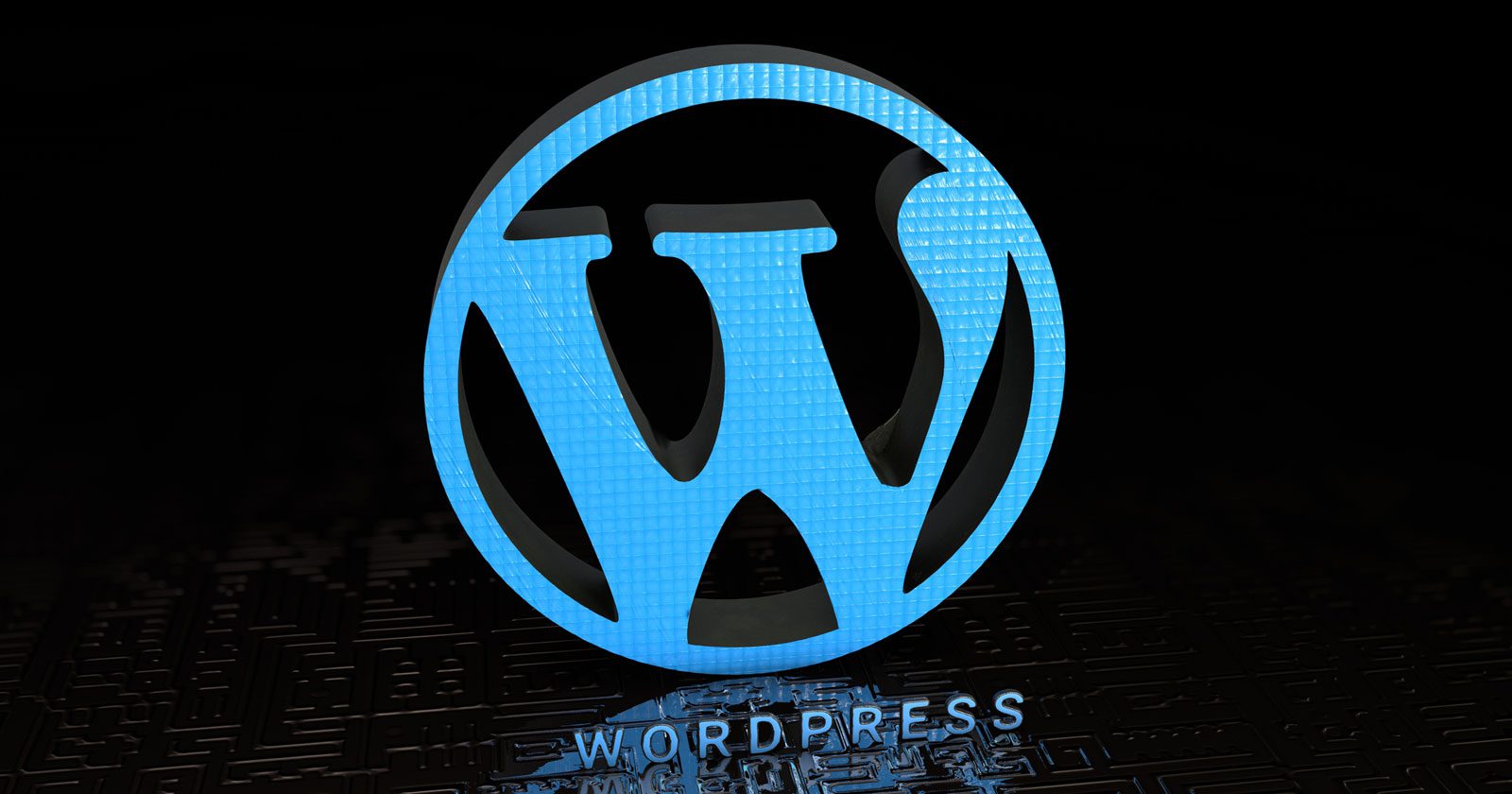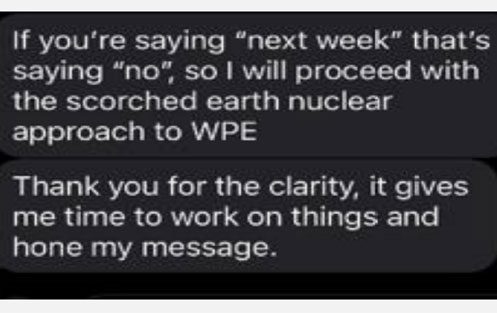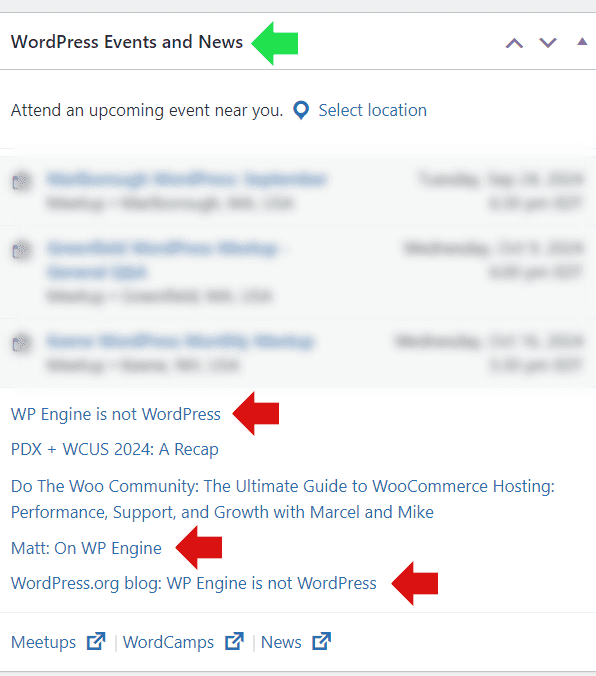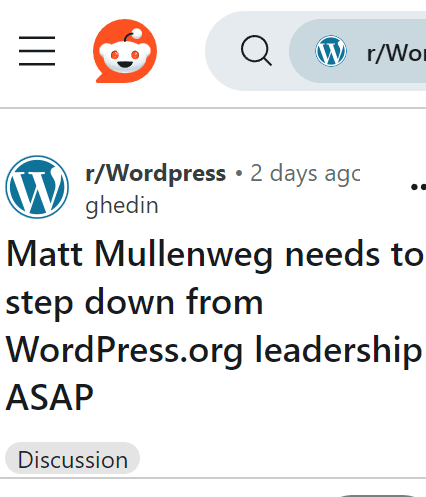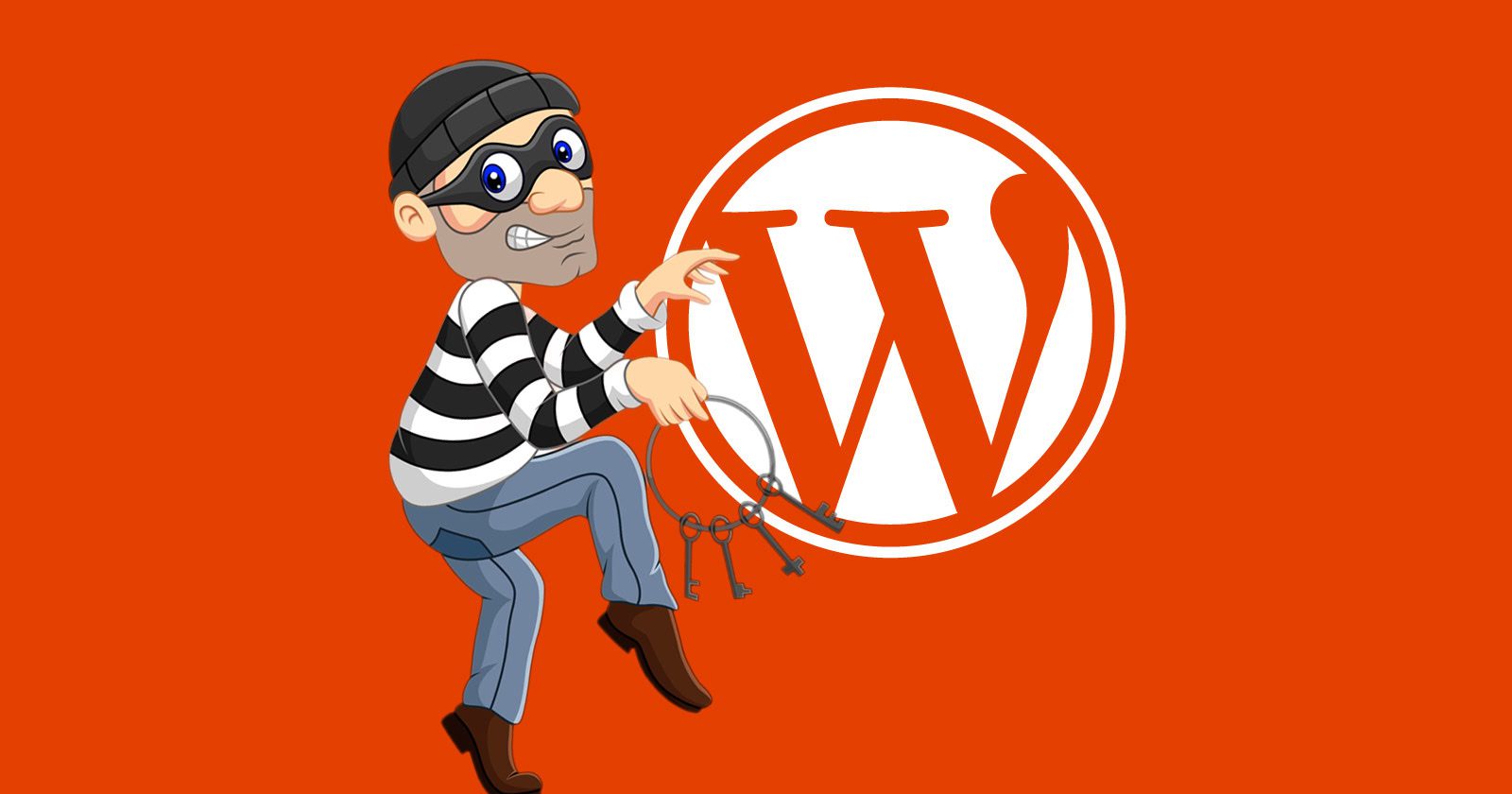Matt Mullenweg, co-founder of WordPress.org content management system and CEO of Automattic, ended a successful WordCamp USA conference with a poorly received keynote that sharply criticized a prominent managed WordPress web host. The overwhelming response was negative toward his statements and a subsequent blog post that continued his combative remarks.
The response on social media to his speech and blog post was so immense that at one point “WordPress” was the number one trending topic on X (formerly Twitter).
This article doesn’t take sides, it’s only reporting what was said and the general response to it.
What Happened
WordPress is built on the idea of a worldwide community working together to create an open source system for publishing ideas. It is responsible for the creation of perhaps millions of jobs, enabled countless ecommerce companies to sell online and created multiple markets and services that would not otherwise exist, all of it built on the idea of community.
WordCamp is the physical manifestation of the WordPress community, a conference organized by volunteers that enables WordPress users at every level to meet and exchange ideas. It’s ordinarily an uplifting and inspirational event which is why nobody was prepared for the bombshell that would close the week of events beginning on September 17th and ending on the 20th.
It’s not that there weren’t hints. Matt Mullenweg published a blog post on the first day of the conference that begins on a cheerful note then becomes progressively darker.
He begins by praising the community that powers WordPress and is responsible for WordCamp:
“If you ever have a chance to visit a WordCamp, I recommend it. It’s an amazing group of people brought together by this crazy idea that by working together regardless of our differences or where we came from or what school we went to we can be united by a simple yet groundbreaking idea: that software can give you more Freedom.”
Mullenweg then criticized Meta as “disingenuously” claiming to participate in the open source movement and then praised companies that give back to the open source WordPress community as part of the Five for the Future program (in which companies are encouraged to put 5% back into growing the WordPress platform).
He then openly criticized WP Engine for not contributing enough.
The amounts that companies are giving back to WordPress is the ax that Mullenweg was swinging in his conference closing keynote on Friday, specifically calling out WP Engine by name.
Ending A Conference On A Low Note
Mullenweg stated that there are some companies that use up resources without giving back, following up by pointing a finger at WP Engine for only sponsoring 40 hours per week of work toward improving the WordPress core.
He said:
“And there are those that treat open source simply as a resource to extract from its natural surroundings, like oil from the grounds, a finite resource, something to be extracted and used.
…a lot of this information that I’m sharing with you all has come from WP engine employees who’ve reached out to me and and talked to me about all this. So thank you all for being brave and for sharing this information that you think your company is doing something wrong.
WP Engine has good people, some of whom are listed on that page, but the company is controlled by Silver Lake, a private equity firm with 102 billion in assets under management. Silver Lake doesn’t give a dang about your open source ideals, it just wants return on capital.”
Matt Mullenweg then took the step of encouraging the WordPress community to find a different web host. He didn’t directly name WP Engine or call for a boycott, but the meaning of his words were not lost on the audience, given that he just accused WP Engine of not giving “a dang about …open source ideals.”
He said:
“So it’s at this point that I ask everyone in the WordPress community to go vote with your wallet. Who are you giving your money to? Someone who is going to nourish the ecosystem or someone is going to frack every bit of value out of it until it withers?”
Followed a minute later with:
“Think about that next time it comes up to renew your hosting or domain. Weigh your dollars towards companies that give back more…
Those of us who are makers who curate the source need to be wary of those who take our curations and squeeze out the juice. They’re grifters who will hop on to the next fad.”
Mullenweg said that he tried to speak with them beforehand but couldn’t get through.
Shocked Audience Sides With WP Engine
Near the end of his keynote, Mullenweg commented about a potential ban on WP Engine at future WordCamps was met with a surprising silence from the audience, with only a few applauding.
Matt Cromwell, co-Founder of GiveWP, tweeted:
“No one I spoke with at #wcus sympathized with @photomatt’s take on @wpengine’s contributions to WP.
One thing is clear: if you want to encourage more contributions to WP don’t light contributors on fire on stage. There’s more to the story between A8C and Silver Lake than we know”
Someone else tweeted:
“I didn’t know how to feel after the public shaming of WP Engine by Matt today. I tried to see both sides….and I felt upset at WP Engine & at Matt at the same time.
After seeing what transpired the hours since on X, I believe it was wrong to call out WP Engine and believe this did more harm. “
Another wrote:
“I work very closely with @WPEngine in my day job. They’ve got some fantastic people over there, and are doing many different things to further WordPress in many different ways.
And I will continue to work with them happily.”
Mullenweg Doubles Down
Mullenweg’s keynote wasn’t the end of his negative criticism. On Saturday he published an article on the official WordPress.org blog that amplified the remarks from his keynote that also generated a largely negative response on social media, with some on X and Facebook even calling for him to step down.
Mullenweg wrote:
“I spoke yesterday at WordCamp about how Lee Wittlinger at Silver Lake, a private equity firm with $102B assets under management, can hollow out an open source community. Today, I would like to offer a specific, technical example of how they break the trust and sanctity of our software’s promise to users to save themselves money so they can extract more profits from you.”
The rest of the blog post gets worse.
Backlash Overwhelmingly Against Mullenweg
One of the cleverest responses is published on WPHercules website which is word for word copy of Mullenweg’s article but with the words WP Engine replaced with WordPress.com (the managed WordPress hosting service), titled WordPress.com Is Not WordPress.org
WordPress agency owner Kevin Geary wrote in a blog response:
“This wasn’t my first WordCamp, but I legitimately felt bad for first-timers. Imagine an awesome and uplifting week ending like the Payback scene in The Sum of All Fears… A little awkward.
…Matt has presumably attempted diplomacy multiple times in different ways over the years as he passed that collection plate around, but without great success when it comes to WP Engine.
The question now becomes, is public ridicule and shame a valid approach? And should this ridicule and shame get delivered in the closing talk at a WordCamp?”
A WordPress community member tweeted that the post “ridiculous and completely unnecessary” and that WP apparently stands for “We’re petty.”
A negative tweet that is representative of the general mood:
“It’s been concerning for a few years now – at least for me. I don’t think a CEO should attack people/corps based on personal opinions, no matter if right or wrong. Not good for the WordPress ecosystem tbh. Agree?”
Another member of the WordPress community tweeted:
“When I go to an event or trade show, I do not assume the organizers support or endorse every vendor.
I also don’t expect them to criticize any vendor publicly at the event.”
Another tweet:
- “Congrats on embarrassing yourself and alienating the #WordPress community to close out #WCUS!
- Truly inspirational.”
And another:
“There’s been talk of the “existential” threat to WordPress’ standing for a number of years. Now it’s crystal clear that Matt is that existential threat.”
Targeting Of WP Engine Perceived As Unfair
This article isn’t taking sides, it’s only reporting what was said and how the WordPress community responded.
Some background information for those who may not be aware is that WP Engine is a managed web host that voluntarily contributes to the development of WordPress core, supports WordCamp and develops free plugins enjoyed by millions of WordPress publishers such as Advanced Custom Fields, LocalWP, WPGraphQL, Better Search Replace, and WP Migrate Lite.
The backlash on social media is firmly against Matt Mullenweg, including in the private Facebook group Dynamic WordPress (registration required) where a discussion generated over 100 posts. One member of the group who attended WordCamp remarked on the shocked faces of WordCamp attendees and more than one person wrote “Matt needs to go!” as others sympathized with WP Engine.
Watch Mullenweg’s keynote at the 7:08:25 minute mark ( 7 hour, 8 minute, 25 seconds):
Featured Image by Shutterstock/Krakenimages.com
